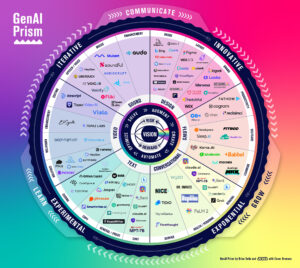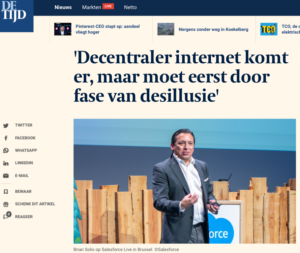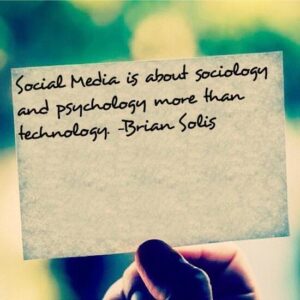I carefully considered this topic before sharing my views. In doing so, my perception might have altered since the news of Hollywood studios banning film stars from using Twitter initially broke.
It’s not a secret that Hollywood has a long history of controlling what is said in the media. Like in almost every industry it touches, Twitter has completely disrupted the chain of command, democratizing influence and shifting the power of publicity, control and reach of information from executives to communities – for better or for worse.
Twitter has indeed upset the balance and it isn’t only affecting studios, it’s also sending publicists into a panic as actors are sending updates without counsel and strategy, only to find their words used in industry publications, blogs and other forms of Social Media.
As THR, Esq. so astutely observed, “getting an ill-advised word out to the wider public required a TV camera or a gossip columnist; social media eliminates the middleman and enables an actor to broadcast to millions in an instant.”
There’s a reason why publicists exist and why studios have held a tight grip on publicity over the decades. Sometimes, it’s in the best interest of the actors and the studios if the process is actively governed. Perhaps, if anything, these are the times when studios should consider empowering their advocates. And, publicists and managers should also proactively advise their clients how to leverage Twitter to fortify their brand personality and the mystique that surrounds it.
Evidence, however, suggests that studios may view Twitter as a threat in the hands of its stars and as such, this miscalculation in perception is fueling a less opportune reaction…
The Hollywood Reporter recently published a story citing proof that movie studios were banning stars from using Twitter. According to the entertainment news source, a Disney contract now includes a new clause forbidding confidentiality breaches via Social Media including, “Facebook, Twitter, or any other interactive social network or personal blog.”
In addition, DreamWorks studios reportedly included an amended section in its contracts that cautions writers not to supercede studio press releases via Social Media. One can assume that this social gag order applies to Cameron Diaz and Mike Myers for the upcoming Shrek movie due out next year.
As the Telegraph reported, Ryan Seacrest was criticized after he broke the news of NBC’s former co-chairman Ben Silverman’s resignation from the company on, you guessed it, Twitter. Paula Abdul reportedly surprised Fox executives by tweeting the news of her departure. And, Heroes actor Greg Grunberg, also sparked controversy about the future of the show when he tweeted during filming for the last episode of season three.
But the truth is that without viewing the contracts, I can not speculate as to the nature of the Twitter ban. I can however comment on what I know. Hollywood is asking its “talent” to not divulge production, trade, or contractual secrets via social media as an extension to the clauses that already include traditional media. Studios are NOT saying that actors cannot tweet, blog, or update their social profiles in the statusphere.
It appears that while these studio directives channel the recent fumbles made by the NFL’s endeavor to ban live tweets from players, coaches, and participating media, they are not as insular. The NFL is attempting to control the production of all media that emanates from events, which is unrealistic and the attempt itself, screams ignorance. However, Hollywood is also not necessarily communicating that it understands the bigger picture either.
Twitter is a very public communications channel, creating a direct bridge from person to person and thus building an incredibly influential and vibrant one-to-many broadcast medium that inspires responses, sharing, and action with every meaningful update.
The sooner studios realize that Twitter and social media do not represent the relinquishment of control, the sooner they can actually possess some sense of it. I would argue that the possession of genuine control before social media was merely an illusion. If anything, we contributed to the loss of control by broadcasting messages without acknowledging their impressions upon those we wished to reach and inspire. The true opportunity is that through value-added participation and engagement, we can actually shape and steer perception and behavior based on our contributions, actions, and responses.
Everything starts with first opening our eyes and minds to evaluate the prospect of what’s new in order to ensure relevance now and in the future.
Connect with Brian Solis on:
Twitter, FriendFeed, LinkedIn, Tumblr, Plaxo, Posterous, or Facebook
—
Click the image below to buy:
pr pr+2.0 pr2.0 public+relations marketing advertising interactive social+media socialmedia brian+solis social media media2.0 media+2.0 2.0 smo social+media+optimization marcom communication publicity advertising expert interactive spin brand branding guru social+architect







![While AI learns and gets smarter and smarter, I spend my time preparing for the future by… [fill in the blank].
The most important skills of the future are human…
#creativity, #imagination, #individuality, #criticalthinking, #empathy
bit.ly/LifescaleBook 💫
Artist: @asiersanznieto
#promptengineering #prompting #ai #genai #artificialintelligence #keynotespeaker #motivationalspeaker #motivational #motivation #education #learning #leadership #leader](https://briansolis.com/wp-content/plugins/instagram-feed/img/placeholder.png)
Hollywood and the NFL are risk-averse just like every other corporation out there. I think it's a mistake to say they want control because they're digital Neanderthals or compulsive control freaks. If common sense and a basic PR acumen was pervasive amongst their talent, social media would be their most powerful marketing tool. Unfortunately they have good reason to believe that giving their talent carte blanche to use social media as they see fit will do more harm than good.
Indeed.
If the studios and publicists are having kittens at all the tweeting going on by actors and other personalities, imagine what is going through the minds of the managers for all these talented people. Finally there is a way for the actors to help promote themselves and now they are talking to fans and directors and producers alike. I would imagine that twitter sounded like a godsend to managers originally, but the new found freedom these personalities have are making it seem like they can talk and think for themselves. I guess the genie is out of the bottle, no putting it back now.
Brian,
I think that the key here is Hollywood production companies need to better emphasize that they are not prohibitting tweeting altogether. Rather, they are just requiring talent to not tweet about secrets of films, plot lines, etc. And as a veteran actor of 20 years, I don't think that's too big a request to ask of us talent. In the broader picture, plot lines, new/returning characters, etc. are the Hollywood equivilant of proprietary information. No corporation allow their proprietary information to be shared via social media without ramification, so why should Hollywood films/productions?
Finally, the actors should understand it's not an unreasonable request. The public is resorting to attempting to coax information from actors through Twitter becase they care. They are curious. In short, they are fans. You as an actor release that information early, then they as fans have no reason to continue to view the film or television show. They'll simply follow the the actors Twitter feed and wait for the information; then move on with their lives. That happens enough times, a TV show loses enough viewers, etc., there won't be work for actors to have.
Yes, that sounds like a gloom/doom way of looking at things. But it's the ultimate long-term view that the industry has to take. Look at the newspaper industry. They didn't think people viewing their content online for free was going to hurt them. So they threw every bit of content online for FREE every single day. Now they're dying a fast death, because no one wants to buy a newspaper for $1 or $2 when they can fire up the computer and get the same information for free. Same thing would happen here. You give away trade secrets and plot lines for free through Twitter; then the public has no reason to view.
Jeremy, well said. Preventing the release of proprietary information will only benefit business in the long run, of course, unless it's strategically calculated, released and timed. In many cases, the plot and ending are as valuable to the potential revenue of a production as innovation is to tech.
I'm planning to comment as soon as my legal team clears it
Warren, lol!
Mine's still working on it.
How is it different from any other company forbidding its employees from divulging company or trade secrets? Makes sense to me.
Erin, exactly…Embracing the tools strategically and proactively can also be an asset to the production. Different discussion, but also worth considering sooner than later.
I couldn't agree more. Couple months ago I wrote a similar post about sports and social media.
http://rhynoblogger.blogspot.com/2009/09/why-sp…
Banning social media isn't going to stop somebody from saying something stupid. They'll find away. They always do..
Ryan, yes…well stated. Common sense is sometimes incredibly uncommon.
Thanks for this great post
This analysis is very timely for me as I struggle to help several small non profits understand social media and online collaboration. The very real struggle some have with these tools is the sense of losing control over the message that gets out about their organization. Rightly so, in some respects, but not to the degree that these organizations fear. Your message is on target about how I can help them understand that.
Thanks.
It was all the gatekeepers, those gates are gone now. Hollywood though, has the right I think to define “what” might be said. Movie deals, show endings, they have the same monetary value as trade secrets with a company. The rules are changing just as we're shifting from an industrial economy to a knowledge one http://www.mediabadger.com/2009/11/the-digital-…
Great read this post was!
Thank you…taking a look.
“Man” continues to make laws until “he” makes criminals out of everyone. (gender used here for simplicity sake only)
“Man” continues to make laws until “he” makes criminals out of everyone. (gender used here for simplicity sake only)
I really like this type of Shoes too, can you help me look at which
ugg boots
http://www.boots-outlet.us
ugg gissella boots
http://www.uggs-outlet-store.com/ugg-gissella-b…
ugg elsey boots
http://www.uggs-outlet-store.com/ugg-elsey-boot…
nike dunk
http://www.discount-nike-dunk-shoes.com
ugg classic tall stripe cable knit boots
http://www.uggs-outlet-store.com/ugg-classic-ta…
ugg boots outlet
http://www.uggs-outlet-store.com
winter boots
http://www.bootsforcheap.us
coach boots
http://www.discount-coach-outlet.com/coach-boot…
coach leather
http://www.discount-coach-outlet.com/coach-leat…
Nike Dunk mid
http://www.discount-nike-dunk-shoes.com/Nike-Du…
ugg boots
http://www.bootsforcheap.us
thank you very much.